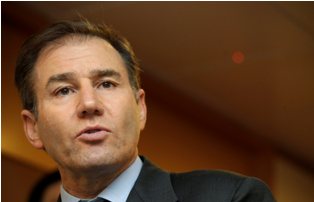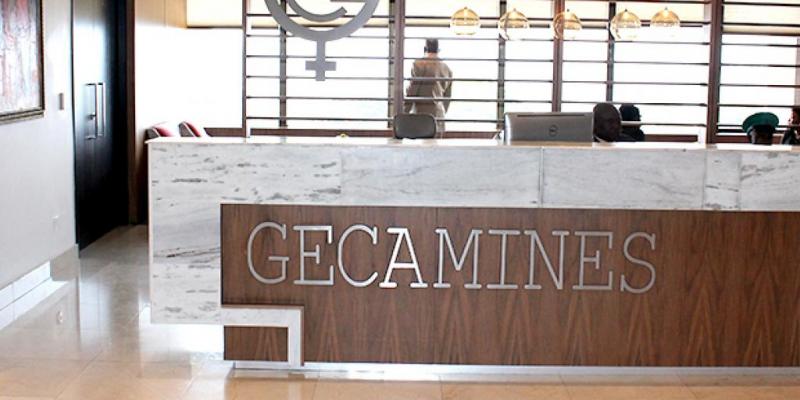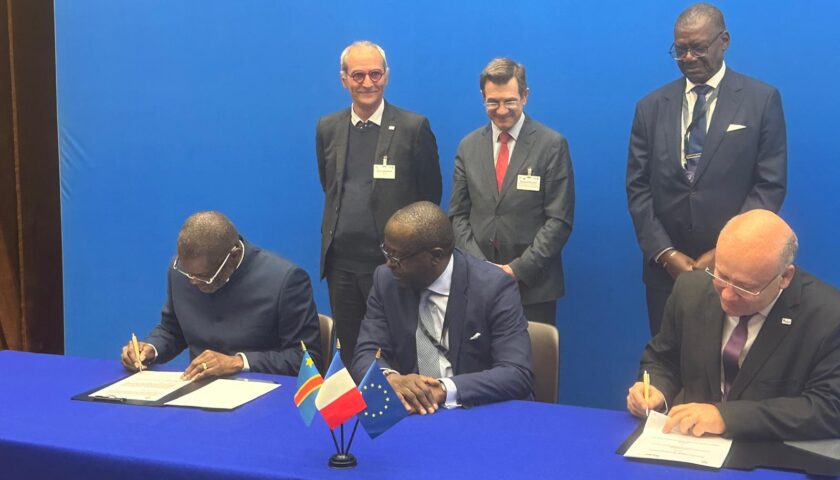According to people familiar with his thinking, Ivan Glasenberg may consider a long-speculated takeover of Anglo American after he takes over Xstrata.

What will Ivan do next?
That’s the question likely to percolate amid seaside cocktails in Cape Town this week as mining executives gather for a four-day industry confab of speeches and discreet meetings.
Ivan, as everyone calls him, is billionaire Ivan Glasenberg, chief executive officer of Glencore International Plc. Next month he’s due to close a $37 billion takeover of Xstrata Plc, creating the world’s fourth-largest mining company. While he isn’t scheduled to address the annual Investing in African Mining Indaba conference, his outsized role in the industry almost guarantees speculation about his next move.
It could be a whopper. Glasenberg, 56, may consider a long-speculated takeover of Anglo American Plc, according to people familiar with his thinking. The $43 billion mining giant trades at the cheapest level relative to profit of any rival, data compiled by Bloomberg show. Also on his mind: Smaller deals such as a purchase of Eurasian Natural Resources Corp., which has operations in the Democratic Republic of Congo that complement Glencore’s, said the people, who asked not to be identified because the matter is private. First Quantum Minerals Ltd. is also a candidate, according to Sanford C. Bernstein & Co.
“I don’t see why Glasenberg shouldn’t try this again with another target,” said Paul Gait, a mining analyst at Bernstein in London. “If Glasenberg wants to continue expanding, he has two choices: double down on the Congo via the ENRC or First Quantum route and be a third-world miner, or set up a lower political-risk entity by merging the Anglo and Xstrata operating assets.”
CEO Exits
Representatives for Glencore, Anglo, ENRC and First Quantum declined to comment.
Speculation about Glasenberg has taken on more resonance than usual as his chief rivals in the mining industry have fallen by the wayside. In recent weeks, Anglo CEO Cynthia Carroll and Rio Tinto Group’s Tom Albanese resigned after both left a trail of writedowns at struggling projects and disastrous acquisitions. BHP Billiton Ltd. CEO Marius Kloppers is also on the way out, and Xstrata CEO Mick Davis is leaving the combined company after Glasenberg insisted on running it himself and investors revolted over a pay package proposed for Davis and other executives.
That leaves Glasenberg, a commodities trader soon to preside over a company with combined revenue of $209 billion and with a long record of successful deals, as the most powerful man in the industry.
“It reminds me of that Chinese saying, if you wait by the banks of the river long enough you’ll see the bodies of your enemies float past: Marius, Cynthia, Mick, Tom. All gone or going,” said Gait.
Exploiting Prices
The Glencore-Xstrata deal creates a one-of-a-kind firm, combining Glencore’s global trading operations in metals, energy and agricultural products with Xstrata’s coal, copper and zinc mines. The combined group will play a central role in the lives of consumers everywhere, supplying grains in cereal, fuel for cars, cotton for shirts and power for homes, along with a range of metals.
Its reach as a trader means the new company will be able to exploit, not just endure, volatility in commodity prices in a fashion that can’t be matched by its rivals anytime soon.
The merged firm “can control the flows and the stocks better than anybody else,” said Tomasz Nadrowski, a New York- based adviser to commodity trading and mining companies. While rival mining groups are likely to respond by expanding their modest trading operations, none will be operating at Glencore’s scale for the foreseeable future, Nadrowski added.
South Africa
A merger with Anglo would give Johannesburg-born Glasenberg a more prominent role in South Africa, where the London-based firm was founded in 1917 and still derives about half of its operating profits. Anglo helped lead the development of South Africa’s modern mining industry, building the fortune of wealthy citizens like the Oppenheimer family in the process.
The company has experience fighting off acquisition attempts, rebuffing in 2009 a hostile proposal from then- independent Xstrata.
Its iron ore, copper and coal assets, which are some of the world’s biggest, could benefit Glencore, said Richard Knights, an analyst at Liberum Capital Ltd. in London. Such a deal would also bring Glencore’s size in line with Rio Tinto and BHP Billiton, creating a third truly global mining firm.
Anglo has been weakened by development troubles in megaprojects like the Minas-Rio iron-ore mine in Brazil, where it booked a $4 billion writedown. As it sought to contain cost overruns, the shares have plunged 29 percent in the last year, leaving Anglo trading at an enterprise value that’s 4.9 times its earnings before interest, taxes, depreciation and amortization.
Cheapest Miner
That’s less than half of the company’s multiple two years ago and the cheapest among base metal mining companies and raw materials suppliers with more than $20 billion in value, according to data compiled by Bloomberg.
Anglo “is an unloved asset,” Knight said. “Glencore tends to go for things that other people aren’t looking at.”
Anglo’s South African platinum mines could complicate any takeover plans. They have been among those affected by violent strikes over pay and working conditions that have also hit Lonmin Plc, in which Xstrata has a 25 percent stake.
Those platinum mines could present an obstacle to Glasenberg, both for their operational risks and the difficulty of integrating light, easy-to-transport platinum into Glencore’s trading operations, which thrive on the price imbalances created by uneven global supplies. That could lead him to seek to spin Lonmin and Anglo’s platinum operations into a new company, with a stake offered to the South African government, as a prelude to a merger, one of the people familiar with his thinking said.
ENRC Deal
While much smaller, a deal with London-based ENRC, a $6.8 billion producer of ferroalloys along with iron ore and power, would also be complex. Glencore would need to secure the agreement of the firm’s three Kazakh founders, who own 45 percent of the company. Any change of control would require the approval of Kazakhstan’s mercurial government.
Vancouver-based First Quantum, whose operations include the Kansanshi copper mine in Zambia, near the Congolese border, would be an alternative target, said Bernstein’s Gait. The company trades at 11 times earnings, a 32 percent discount to the median for base metals companies larger than $1 billion, data compiled by Bloomberg show.
The challenges of absorbing a large company like Anglo may be well-suited to Glasenberg, who has a reputation as an astute trader, fierce negotiator and charismatic dealmaker — traits honed over almost 30 years in the commodity trading business since he joined a predecessor firm, Marc Rich & Co., in 1984. He was part of a $1.2 billion management buyout from Rich in 1994, which saw the company renamed Glencore.
Glasenberg’s Wealth
Glencore’s May 2011 initial public offering made Glasenberg a billionaire on paper, his 16 percent now worth about $7 billion, down from $9.3 billion.
To be sure, Glencore isn’t immune to broader problems facing the mining industry, which has gone on a $1.1 trillion takeover binge in the last decade. It may write down as much as $2 billion from the value of Xstrata assets once the merger is completed, according to Liberum’s Knights. And trading isn’t a guarantee of financial stability; in 2011, bad bets on cotton swung Glencore’s entire agricultural trading unit to a loss from a $659 million profit a year earlier.
Glencore’s shares have also retreated 25 percent since the company’s IPO, more than double the decline for the MSCI World Index of 146 material companies, according to data compiled by Bloomberg.
Yet there’s little doubt that this week in Cape Town, rival executives will be envious of Glasenberg, a former Olympic- standard race walker who can often be seen jogging before dawn in London’s Hyde Park. The global commodities landscape is increasingly volatile, said Nadrowski, playing to his strengths.
“All of this, in a way, gives an advantage to people whose profit and loss is dependent on flexibility: the traders,” he said.
–With assistance from Tara Lachapelle and Larry Reibstein in New York. Editors: Larry Reibstein, Sarah Rabil
To contact the reporters on this story: Matthew Campbell in Cape Town at mcampbell39@bloomberg.net; Jesse Riseborough in Cape Town at jriseborough@bloomberg.net
To contact the editors responsible for this story: Sarah Rabil at srabil@bloomberg.net; Jacqueline Simmons at jackiem@bloomberg.net
©2013 Bloomberg News




